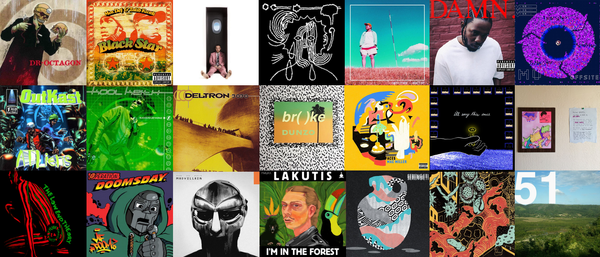Ryan Trimble • • 4 min read
Social Media is Distorting Your Creative Vision, and You Don’t Even Know It

What drives your creative work? Money? Fame? Success? If you’re an artist, you’re probably answering “no way”— meaning drives you. Finding purpose or making your life meaningful is your deepest priority, even if it’s not the priority you act on most. (Let’s face it, if living a meaningful life consisted of following an indubitable recipe, we’d all do it. But it doesn’t.)
Whether subtly or profoundly, we all experience this drive for meaning. And though the cause of this drive seems unidentifiable, it’s by searching for it that we add meaning to our lives. Art is just one way we undertake this search. The difficulty, though, with making art is remaining honest, and often our truest desires get supplanted with the desires of others. If you’re struggling to find artistic fulfillment, it may have nothing to do with your skill set or methodology, and everything to do with unquestioned motivations.
For some time now my own work (writing) has felt polluted. I’ve struggled to achieve a sense of honesty, so I recently began exploring why. What I found is an intoxicating ideology and social media as the dominant carrier of it. Together they chloroformed me, stifling my creativity and sapping the pleasure from my work.
Social media amplifies one message that can hinder the artist: the idea that you can do what you love and get paid—the American Dream. Of all possible payoffs in the land of opportunity there is none more enticing than that of getting paid to follow your bliss.
In recent years social media has reiterated this ideal, offering proof from authors, photographers, musicians, filmmakers, comedians, designers who have achieved success through Instagram, Youtube, Twitter, or Facebook. Of course, “success” is a nebulous term. But let’s agree here that it means financial comfort, because, more or less, we assume that if a person is doing what they enjoy and is financially comfortable then they must be exquisitely happy. So although art begins as some intuitive impulse or desire for expression or the exploration of meaning, when repeatedly exposed to the American Dream we begin making art with the goal of “succeeding.” We conclude that if making art is enjoyable, then being recognized, appreciated, and paid for making it must be doubly enjoyable.
Suddenly that becomes the goal: recognition, adulation, payment, success. America’s great ideal creeps into our unconscious even when we consciously oppose it. Where we once aimed for honest expression, we now chase falsities and wonder why we feel frustrated and alone. Our lust for happiness prevents us from seeing that happiness isn’t necessarily found in the eternal promise of American capitalism. The signs of social media, if heeded, would point us over a cliff after the American Dream.
I’m targeting social media as the propellant of this ideology because they’re the most infectious. With personalized news feeds, instant accessibility, and unmatched power to usurp the nucleus accumbens, social media makes other media look juvenile.
If we thought advertising was ubiquitous before, it is now omnipresent—and omniscient; advertisers know us. Because we pay for web services with data instead of dollars, our desires and fears, our tastes and distastes, are being marketed to. And if you have even a shred of artistic or entrepreneurial drive, you’ve noticed (and have probably been targeted with) this one hypnotic message:
“Follow your bliss, be who you are, do what makes you happy, live your life, and success can be yours.”
Just submit your information to get started…
The American Dream has evolved. In my parents’ day the promise entailed a pink stucco suburban home, Chevrolet in the driveway, and a modest retirement plan. In my youth the Dream advanced to include playmates and Lamborghinis. (MTV convinced me there was no better life than that of a rock star.) And though the Dream has always spun consumable goods as being the pathway to eternal bliss, recently it has become more ethereal. Today, the promise is one of spiritual and creative achievement, meaningful contribution, and an authentic life, with the assurance that you’ll be permanently happy if you achieve it. The American Dream, much like the War on Terror, is a vaporous concept, open to any interpretation and pursuable without end. Consequently, it’s also endlessly salable.
Maybe that’s why the notion of authenticity has been criticized in recent years—because it’s so easily propagandized. But haters are missing the point. The desire for authenticity is born of the desire for meaning; it is the spiritual goal of a secularized world. And striving for authenticity—aligning your life with your deepest, self-chosen values—is worthwhile, particularly when it comes to artistic endeavors. What deserves criticism is the song of Pollyanna capitalism. We have commoditized an elemental human drive, and we’re all buying with subscriptions to apps and technologies and websites that promise to give us voice, help us make and sell our art, and become our bestest selves. But the more we repackage hope for self-actualization as the purchasable American Dream, the less hope there is.
I’m not trying to present a false dichotomy here. I recognize the utility of social media. And I confess that America’s economic mobility enhances our opportunity to achieve our goals, artistic or otherwise. When you consider the world and its history, it’s astounding when anyone is financially compensated for doing what they love. But doing creative work with the goal of being successful is not the same as making art. Aiming for and achieving success is called good business. Art, however, is not about business. It’s about meaning, discovery, and personal growth. If we want our art to fulfill those drives, we must discard those for fame and fortune. Which, for most of us, means checking the influence of social media.
We make art to make ourselves. We perform our creative work to see whether we can become the person we believe we are capable of becoming. And we know we will fail. But it’s that knowledge combined with the fortitude to explore and create anyway that results in artful living. And that is the reward. Any reward beyond that is, by definition, good fortune. In the end, art should be motivated by a desire to add something to the world.
What follows from our offerings must be left to the gods.










